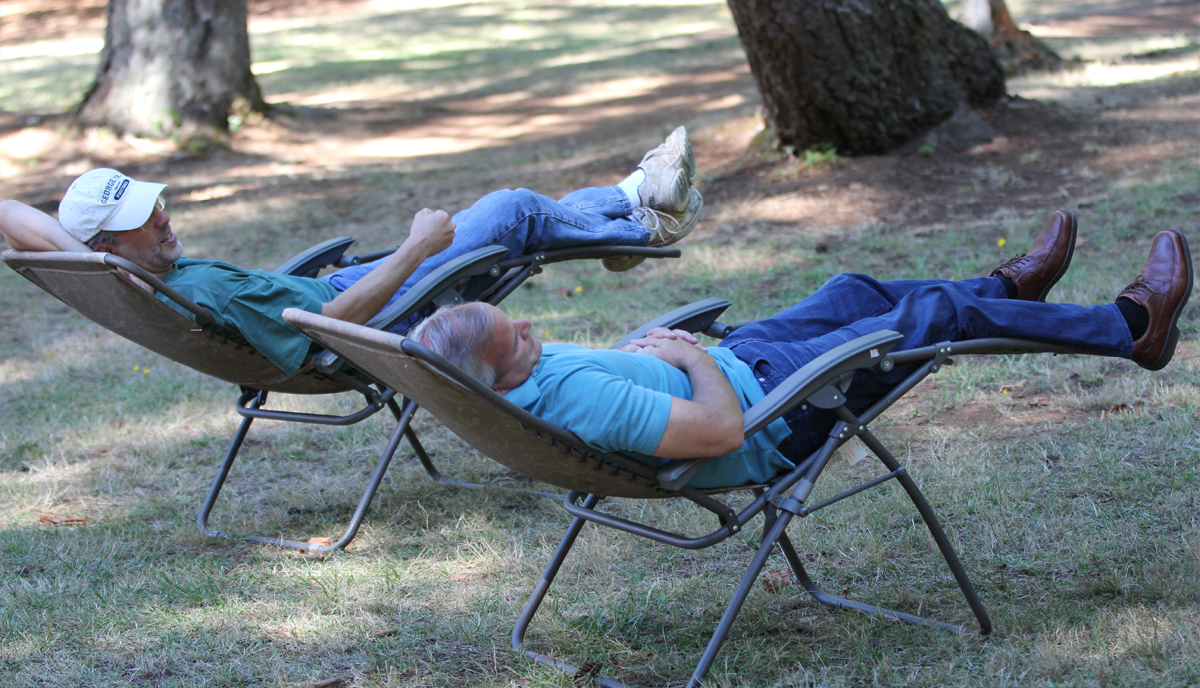Sunday is traditionally a day of rest in the United States, but not for those in the medical field. Illness doesn’t take the weekend off. Call obligations cause us to work some weeks straight through without a break. Patients don’t all go home from the hospital on Saturday night to give us Sunday off.
Rest is critical to maintaining good mental and physical health. In our fast-paced society, we tend to forget that. Rest is the first thing we cut from our schedules when we get busy. “I just don’t have time to rest right now.” “But Sunday is the only day I can mow the lawn.” “I can’t afford to get behind.” “I’ll take a day off after I get this presentation finished.”
One project runs into another, and another, and we never seem to have the time to take a day off to rejuvenate ourselves. But without rest, we will eventually run down and burn out. Rest improves our productivity, our mood, and our wellbeing. Rest doesn’t mean do nothing though, as a simple change of pace can be rejuvenating. After a hard week in the hospital, an afternoon of gardening could recharge some people’s batteries the same as reading a novel, watching a movie, riding a bike, or visiting a friend would for others.
Having an outlet for release and relaxation is key to a long and productive career. Do you have a hobby? Hobbies are a good way to get some down time or a change of pace. If you love your hobby, you will make an effort to find time to fit your hobby into your schedule.
When I was racing bicycles, my hobby for a few years, I learned some important lessons about training, rest, and how athletes think. If there is a big race coming, amateur athletes tend to train right up to the event. They don’t want to lose ground on their fitness. But muscles are weak after a hard workout and only get stronger when given the time to rest, rebuild, and rejuvenate. Without the rest/rebuilding cycle, muscles can’t get to their true potential. Professional athletes take a scheduled rest week just before a big event. They don’t take working out to zero, but they back off of the intensity a lot. It makes them stronger, refreshed, and ready to put in the hard effort needed on race day. Without scheduled rest periods, athletes would burn out and be too tired to ever win a race.
Doctors need to learn from this. We can’t be going 90 MPH all the time and expect to never wear out. We must schedule time for rest and consider it an important part of our life. We should have a small rest period in each day, maybe a phantom patient that allows time to sit in the office for 5 min to relax. Take a real lunch instead of grabbing a sandwich to eat on the way to see the next patient. There should be a scheduled rest period each week for at least one day. Adequate vacation time should be taken each year. One week is seldom enough time for a doctor to recover. It takes at least one week just to unwind and forget about the patients we left behind, then the recovery can begin. Every few years we should take a small sabbatical of at least 4 weeks. The benefits of a sabbatical are not apparent until after returning to work. We can’t take care of our patients if we don’t take care of ourselves.
If we don’t schedule these rest times into our lives when we first begin a new job, our schedule will fill up. Once that happens, it is very difficult to back the schedule off to get some rest. It must be programmed in from the start. In my book, The Doctors Guide to Starting Your Practice/Career Right I talk about setting up the expectations when you start in a new facility. If you are interviewing to become a new attending next summer, please read the book right away, to be sure you get the right start. It is also helpful if you are changing jobs or just need ideas for a reset of a schedule that is overwhelming you. Don’t ever let a lack of adequate rest be the source of burnout. Contact me if you need help to stop an impending burnout.



